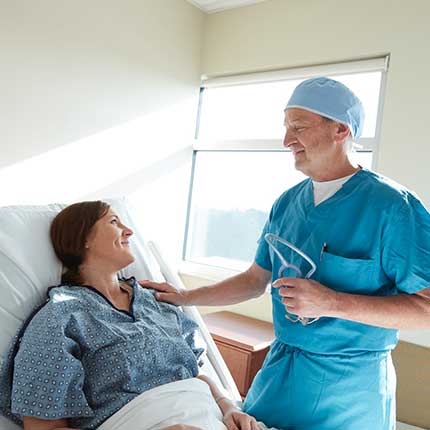Top 5 Things to Know About Your Colonoscopy

A colonoscopy procedure is often used to detect changes or abnormalities in the colon and rectum. Below are answers to some common questions about colonoscopy. To find a DMC physician or gastroenterologist, visit DMC.org/find-a-doctor or call 313-577-7261.
- Is a Colonoscopy Painful?
Sedation and providing pain medication are part of the procedure, so most people feel nothing or possibly just some slight discomfort or cramping. - What Can be Seen During the Procedure?
The gastroenterologist will use a long, flexible tube with a tiny camera on the end to look for the cause of any reported bleeding, unexplained diarrhea or changes in stool shape. The removal of pre-cancerous or cancerous polyps can often be done during the colonoscopy procedure. - Why Does Everyone Dread the Prep?
You will be given preparation instructions that include prescription or over-the-counter laxatives and mandate the consumption of clear liquids because dyes can discolor the lining of the colon. The side effects of laxatives and lots of fluid intake often means multiple trips to the bathroom over several hours the night before and into the morning of the procedure. - How Long Does It Take to Recover?
Most people return to normal activities within 24 hours, or after the sedation wears off. Patients typically are able to return to work the next day. - When Should I Get a Colonoscopy?
Unless you are experiencing stool changes or other symptoms of colon or rectal cancer, your doctor will likely order your first colon cancer screening at age 45 and repeat screening every 10 years afterwards for people in good health and who have no polyps. On the other hand if polyps are found and removed then based on the size, type and number of polyps the gastroenterologist with recommend when your subsequent colonoscopy should take place.


